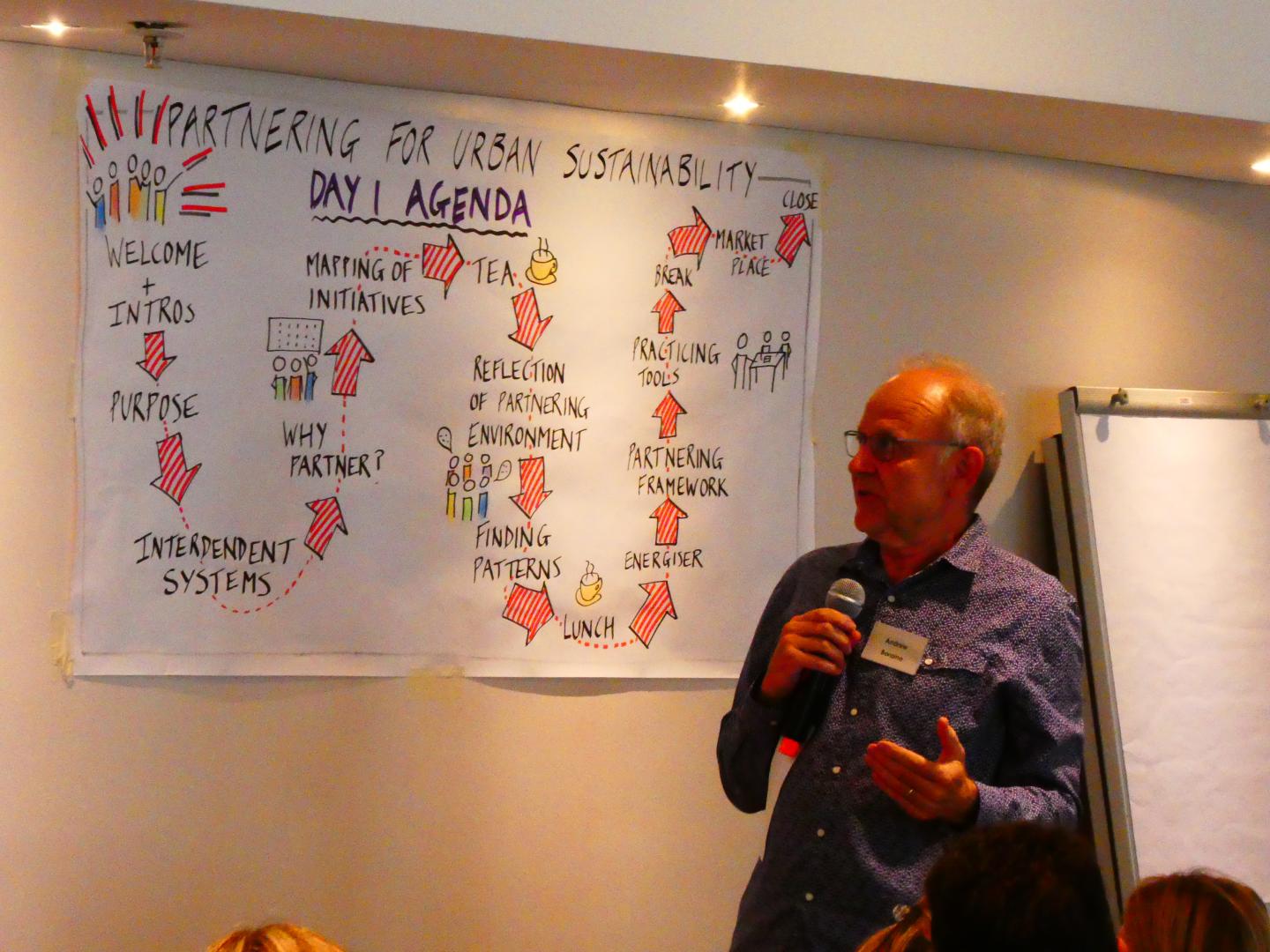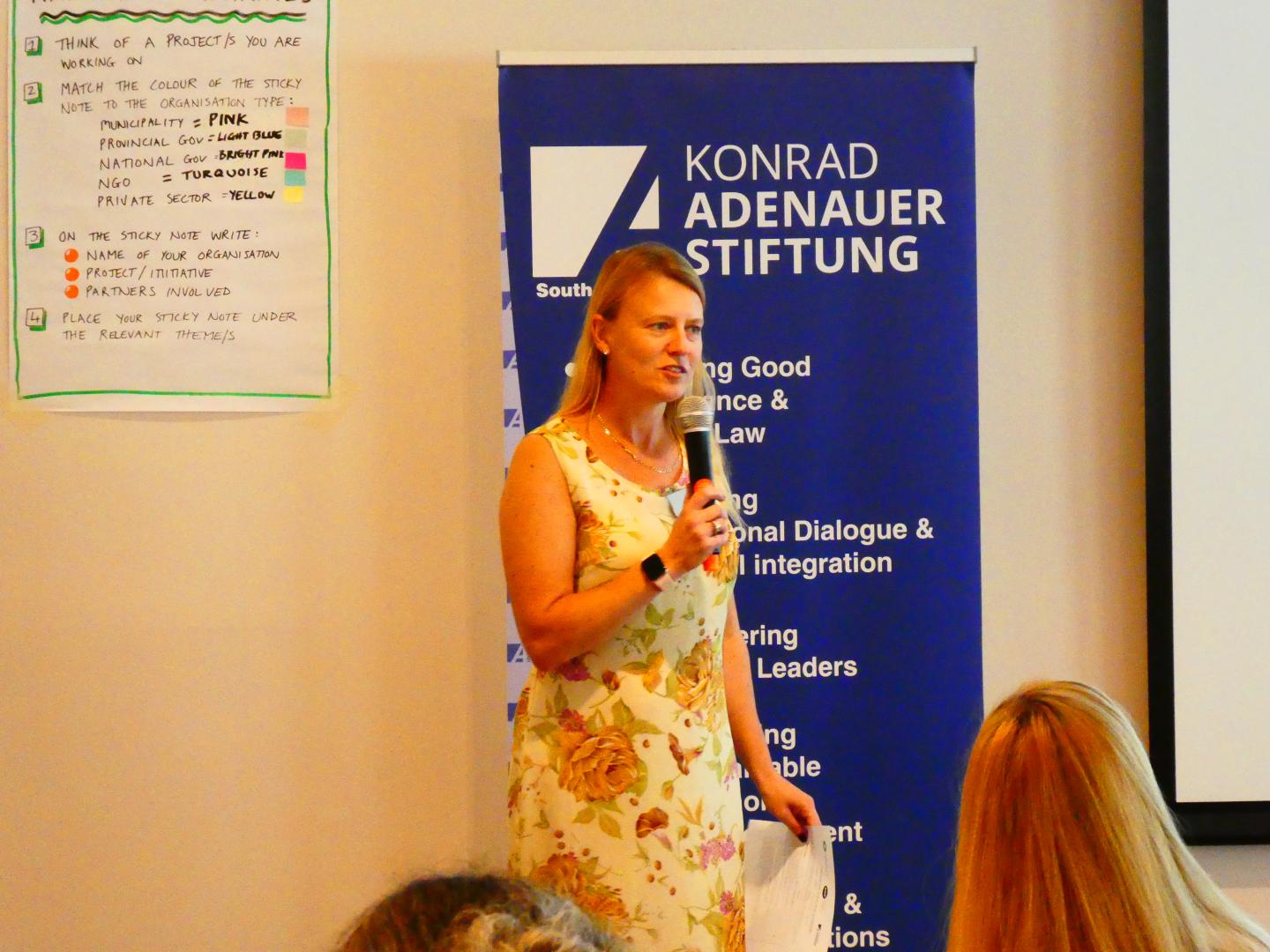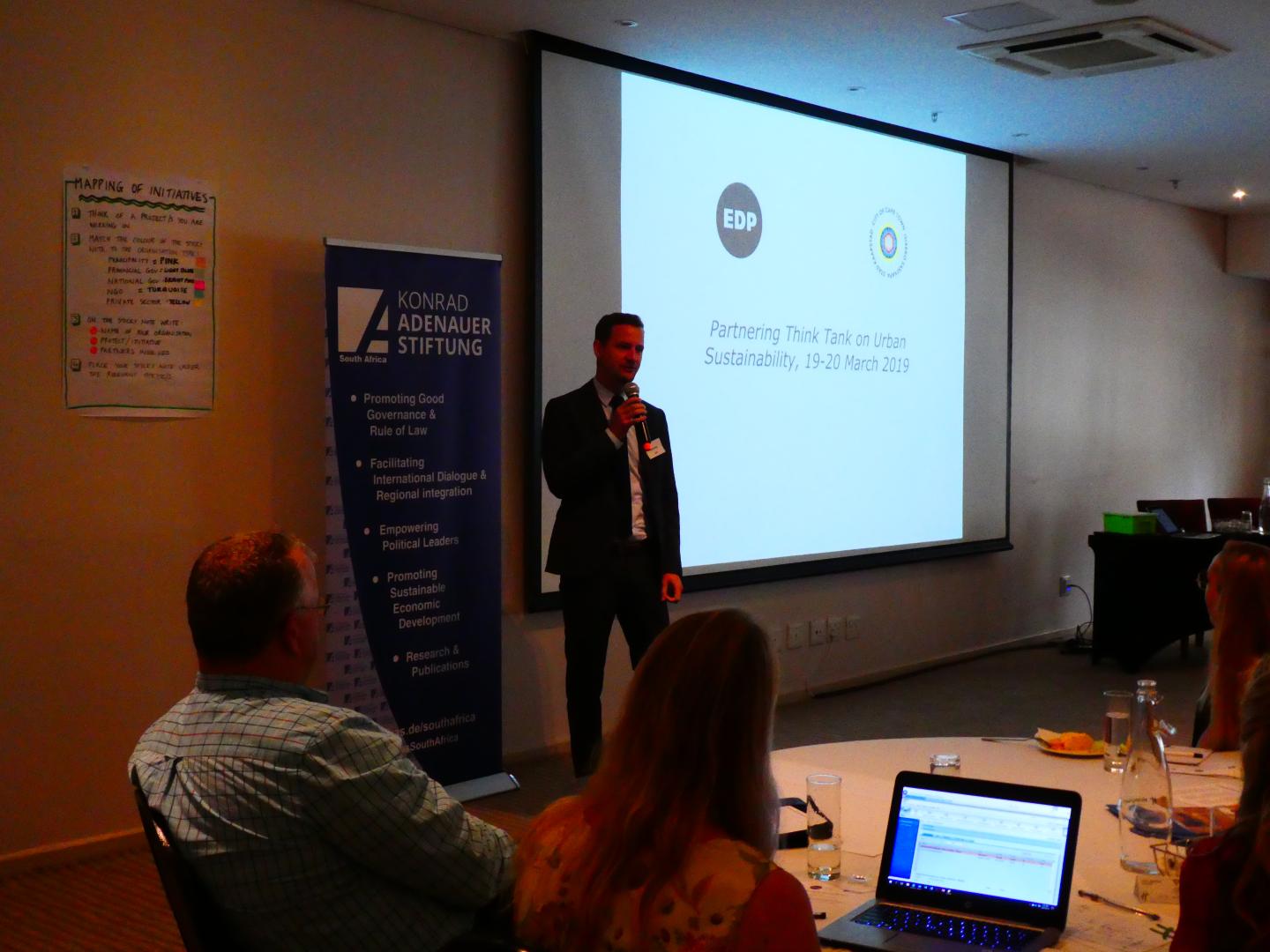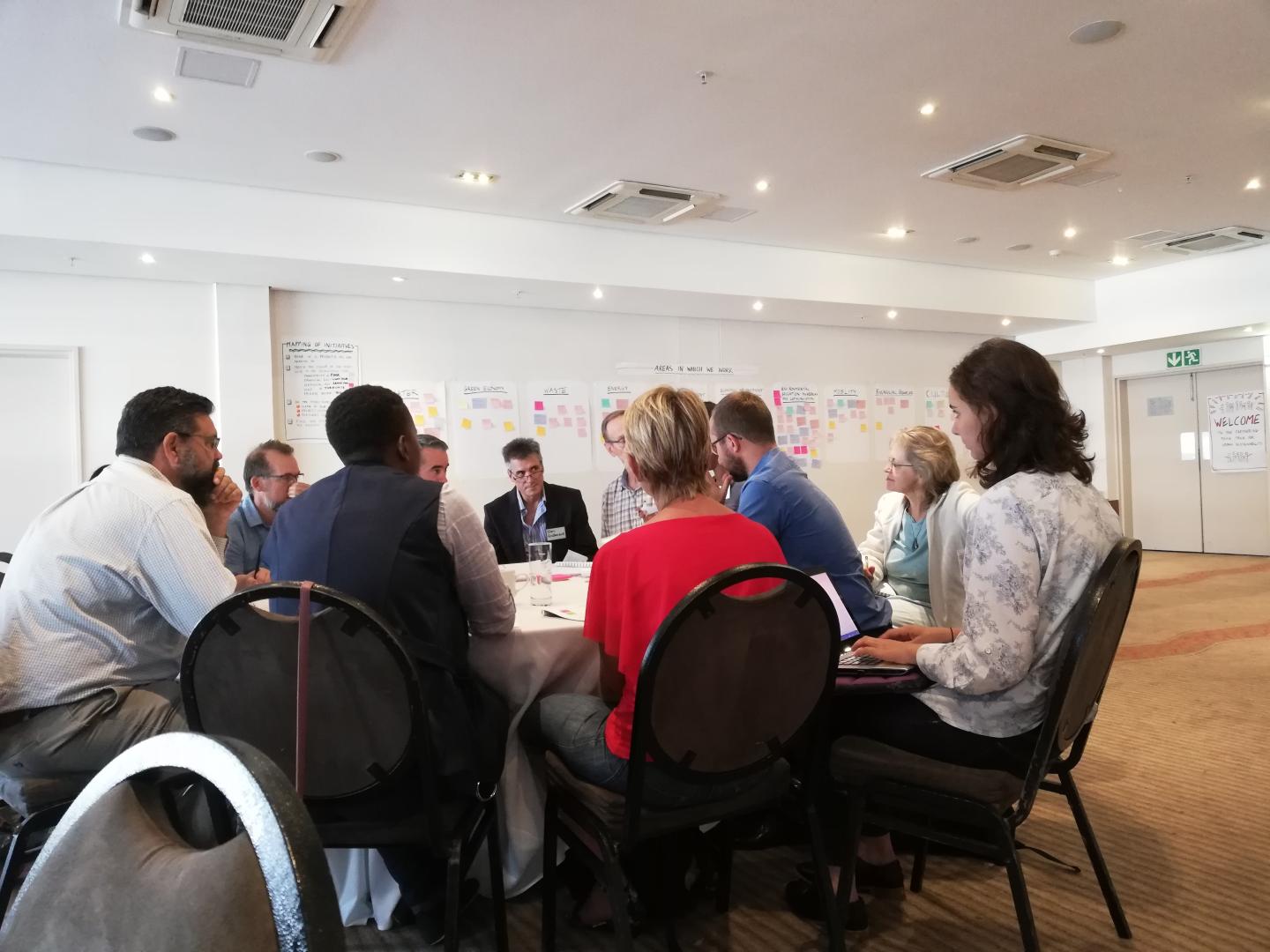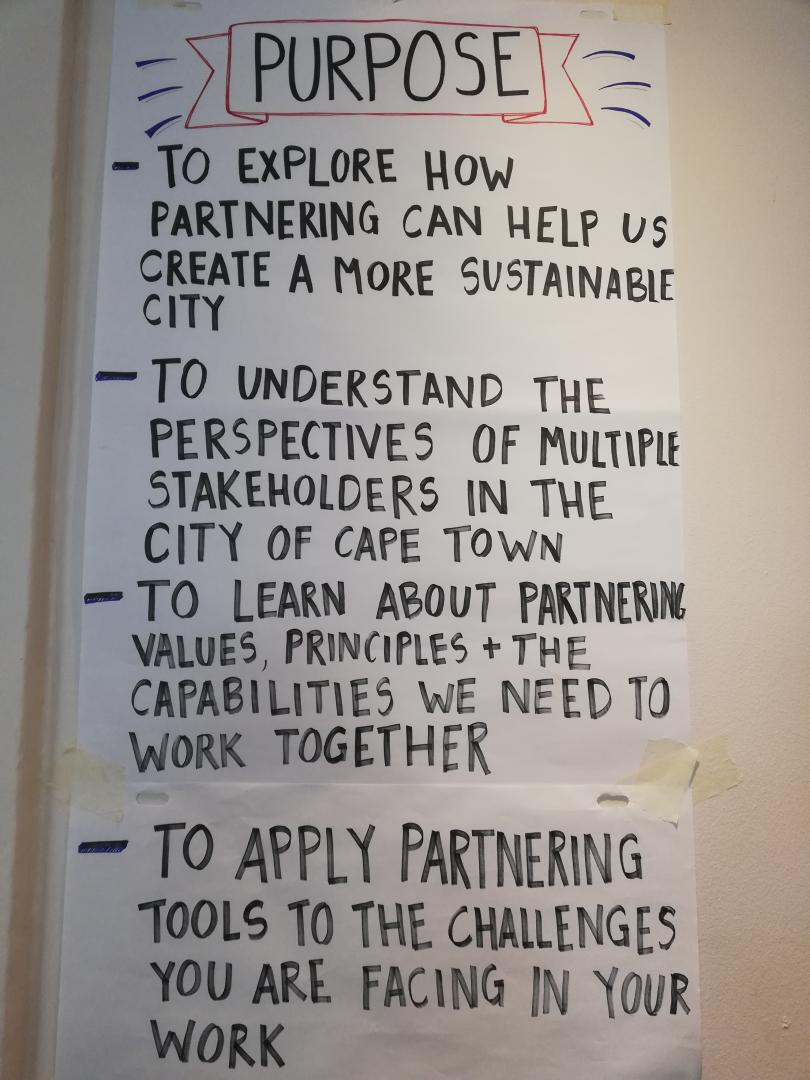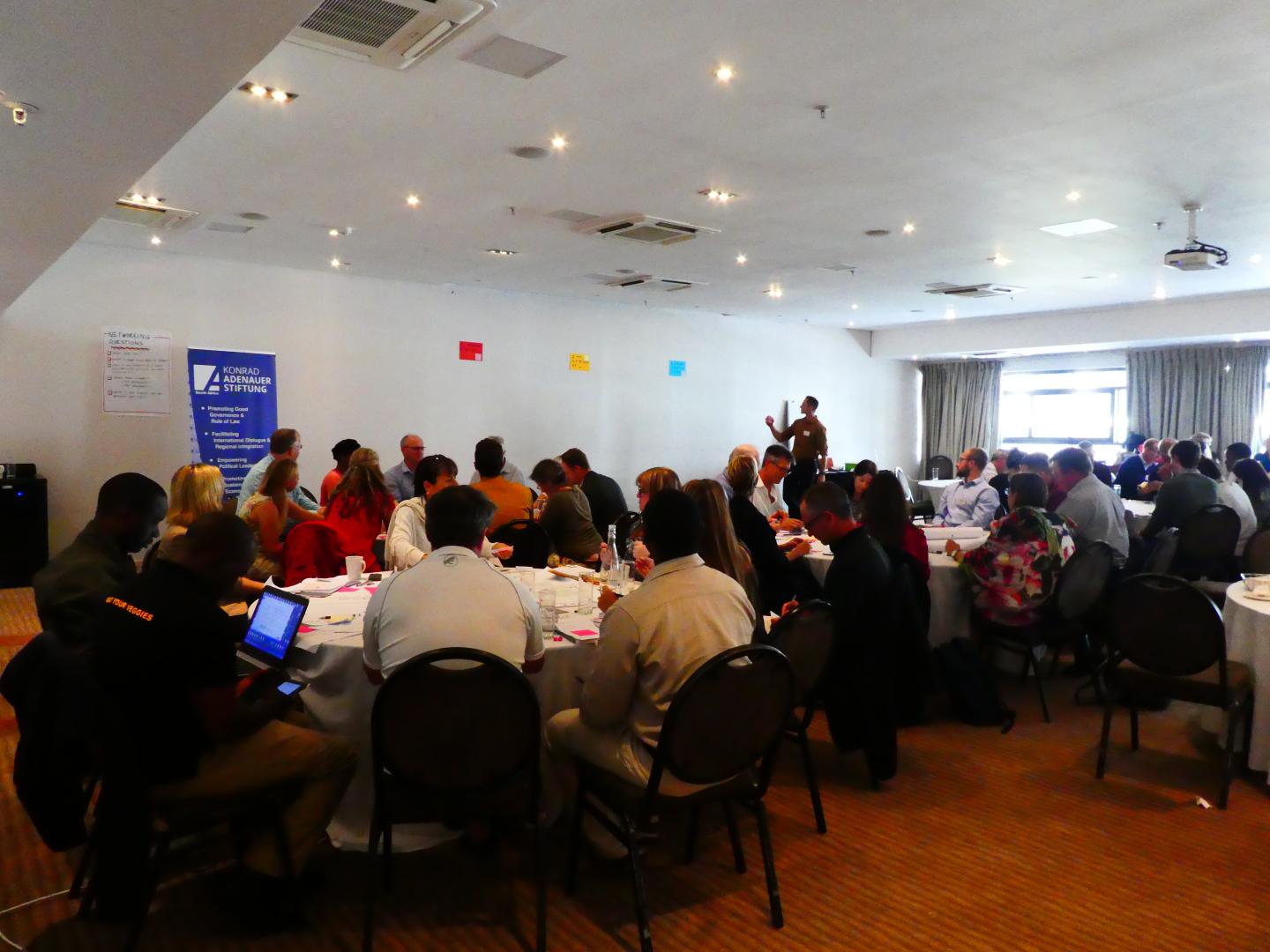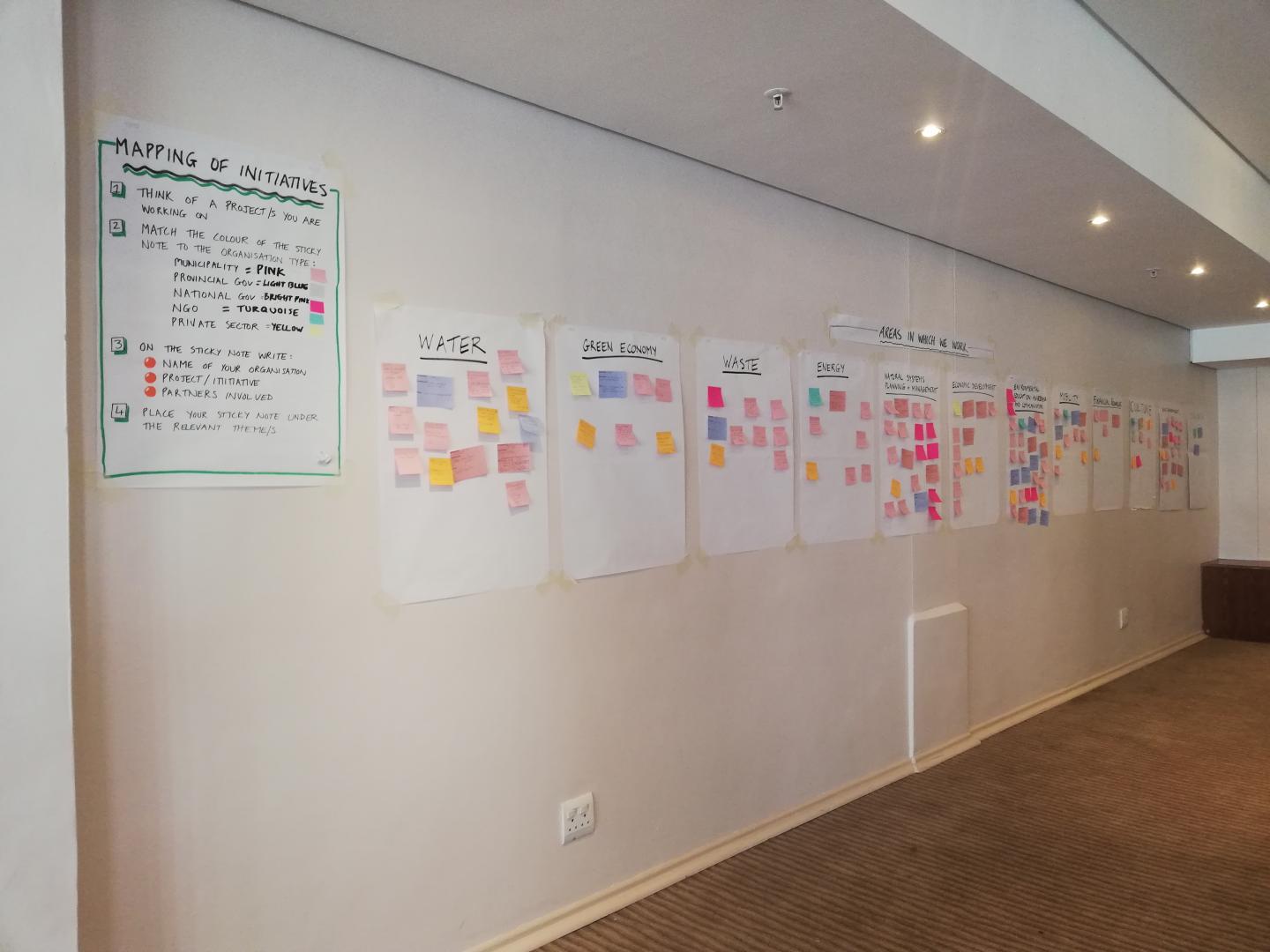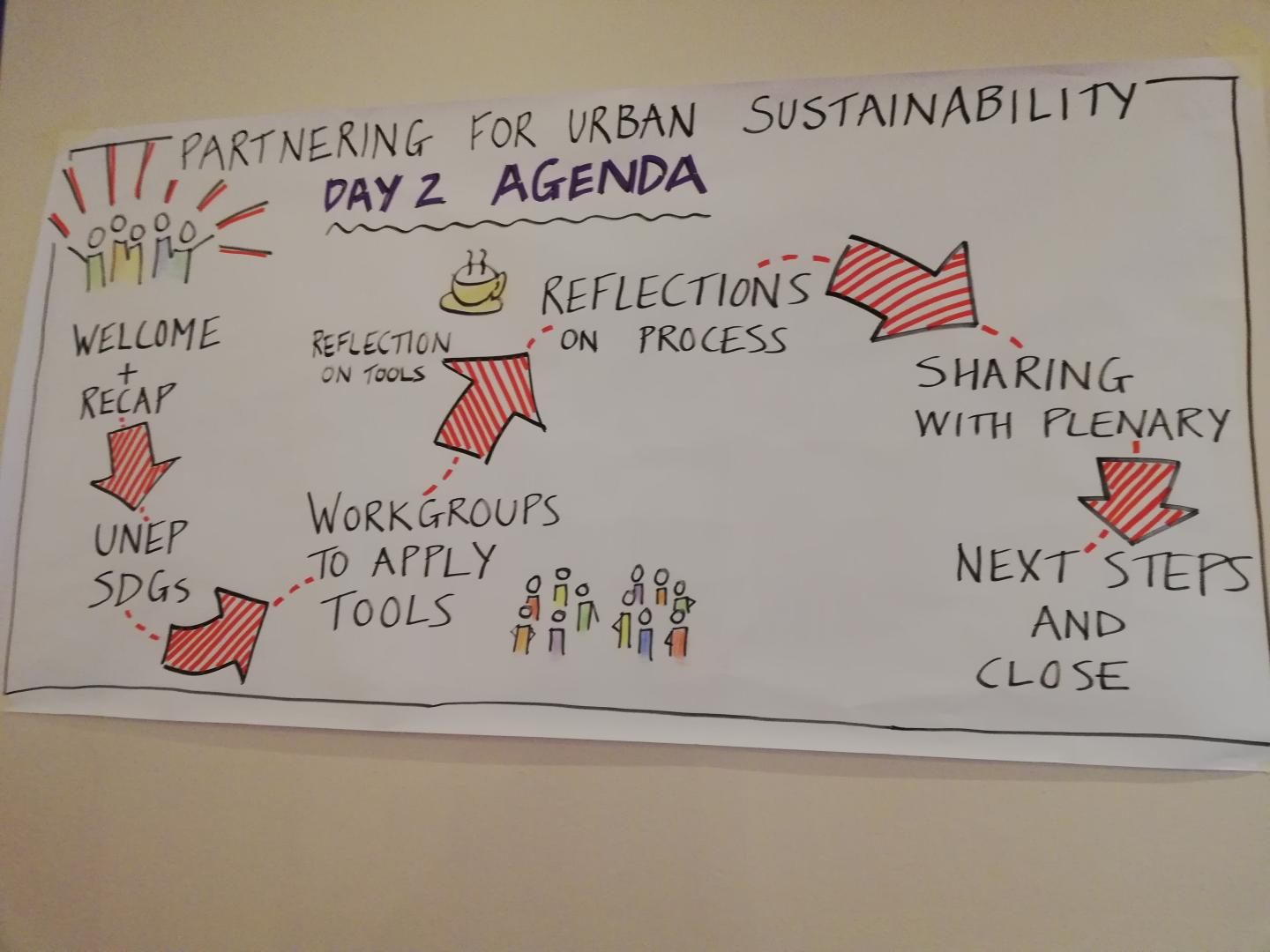Partnering Think Tank for Urban Sustainability - Foundation Office South Africa
The overall objective of the workshop with participants from the City of Cape Town and external actors was to build capacity for effective partnering practices. In more practical terms this meant to explore how partnering can help to create a more sustainable city, to understand the perspectives of multiple stakeholders in the city of Cape Town, to learn about partnering values, principles and the capabilities needed to work together and last but not least to ap-ply partnering tools to the challenges partic-ipant face in their daily work.
Lorraine Gerrans, Head of Sustainable Partnerships and Financing in the Environmental Management Department of the CoCT and Stephen Granger, Manager of Environmental Business at the CcCT, welcomed the participants and highlighted the importance partnerships have for the City. Henning Suhr, Resident Representative of KAS in South Africa emphasized in his welcoming remarks the need for promoting democracy and good governance on the local level, the government level closest to the people.
Andrew Borraine, Head of the EDP, who facilitated the workshop, referred in his welcoming remarks to the city’s successful water saving strategy following the drought, which made clear that a city can achieve much more when partnering with the private sector. Moreover, he defined the workshop’s heading “partnering” as a verb of action which means doing things together. He explained that the workshop aims to better understand who and what tools are needed to form sustainable partnerships and make them work. The workshop’s intention was not to present one-size fits all solutions but to search for innovative solutions.
Theoretical Background
Borraine presented an explanation why partnerships are useful and summarized the advantages as follows:
1. Do more with less in the context of economic slowdown and shrinking public sector resources.
2. Achieve collective impact (vs. parallel, unsequenced, isolated or competing projects).
3. Be able to navigate complex societal issues, especially when operating in a low certainty, low agreement, fragmented gov-ernance environment.
4. Sustain impact beyond the initial project by building relationships and trust in the system.
Thinking about project implementation and its failures, Borraine touched on one essential question that is not asked in the begin-ning of every planning process but should be the question to start with: “Who will work together in order to make it happen?”. As a consequence, before making plans about what needs to be done, a partnering framework and a collaborating strategy and how the various stakeholders will work together should be the first step. During this step partnership restraints should also be considered. Even though partnering makes planning and implementation more successful, not every stakeholder in the system is pro-partnering. In case different organisations are competing for example over financial support, partnering is less likely. Without partnering successful projects are often isolated and will not have a substantial impact. The same applies to partnering alignment resulting in a separate development. Partners share the risks as well as the rewards and are mutual accountable, which differentiates them from only being stake-holders, service providers or implementation agents. Especially for complex and implementation intense projects partnering is essential for a successful outcome. Even though the division of local government in three stages, which are elected political structures, administration and the commu-nity of the municipality, requires close cooperation and partnering, they often struggle to work together in a productive way. That is why there is a need to better understand each other and the constraints each partner is facing. In order to promote local government to become an “enabler of development rather than simply a deliverer of services” (Amartya Sen, Development as Freedom, 1999, Development as Capability Expansion, 2003) the workshop was organized in different working groups to make the “implicit of working together explicit”.
Before working on actual partnerships, it was mapped out which partnering initiatives are present at the workshop and where they are located: local, provincial or national government level, NGO-level or in the pri-vate sector.
Application of partnering tools
In every partnering process there are several stages of partnering. For example, the identification of partners required as well as their importance and the relationship with them. In order to work successfully together in every partnering stage, EDP provides a toolbox for the whole process. For the above-mentioned stage of partner identification, a partner assessment should take place, where one actor maps out whether the relationship with its partners is weak or strong and whether and which partner has a low and high impact for a successful project implementation. With this tool it becomes clearer, which relationships must be strengthened to achieve a certain project outcome.
All tools are simply understandable and designed to be workable in the field. Since partnerships do not work on a general level, the second day of the workshop was dedicated for “zooming” in the actual partnerships. Participants had the opportunity to introduce certain projects they work on to their colleagues and take a deeper look into how to apply the partnering tools. Since a delegation of Aachen, Germany was present at the workshop the longstanding partnership between Aachen and the City of Cape Town was used as one of the examples for this exercise.
The workshop closed with a reflection on the usage of partnering tools and how to include them in future partnering processes. All participants highly valued the tools and were planning to use them in their daily work.



